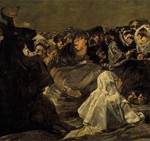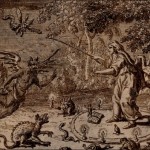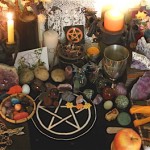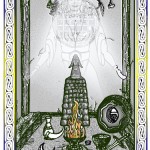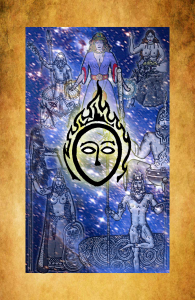 After a great deal of thought about the issue of so-called ‘hard’ polytheism in our Pagan revival, I’ve reached a personal philosophical conclusion. I can’t stand by the so-called ‘hard’ position – that every named deity is a separate and unique individual – and feel true to my understanding of ancient religion. Nevertheless I am a polytheist and animist, and continue to apply reconstructionist methods to my effort to build modern spirituality. Doing so does not require any specific position on the nature of the gods.
After a great deal of thought about the issue of so-called ‘hard’ polytheism in our Pagan revival, I’ve reached a personal philosophical conclusion. I can’t stand by the so-called ‘hard’ position – that every named deity is a separate and unique individual – and feel true to my understanding of ancient religion. Nevertheless I am a polytheist and animist, and continue to apply reconstructionist methods to my effort to build modern spirituality. Doing so does not require any specific position on the nature of the gods.
First I want to say that I do not think that the opinion one holds as to the nature of the gods and spirits is in any way definitive of participation in either Paganism or polytheism. Polytheism is the idea that ‘the divine’ or spiritual reality (however understood) exists as numerous (usually innumerable) individual expressions – many names and forms. This is the natural human perception and expression of the divine or spiritual portion of reality – we see it in and as many things.
The term polytheism does not include the idea that each and every one of those names and forms is a distinct individual being. The most basic examination of either ancient European Pagan literature or of modern polytheist religions makes it clear that a range of metaphysical models always exists in the polyvalency of a nature-modeled religious system. We see multiple names of what is understood as the ‘same’ deity, even as local expressions of that deity diverge over time. We see philosophical monism toodling along parallel to functional animism and spiritism, all in the same wide spectrum of a single tradition. In very few cases do we find that a belief test must be passed before one is welcome to make offerings in a traditional temple.
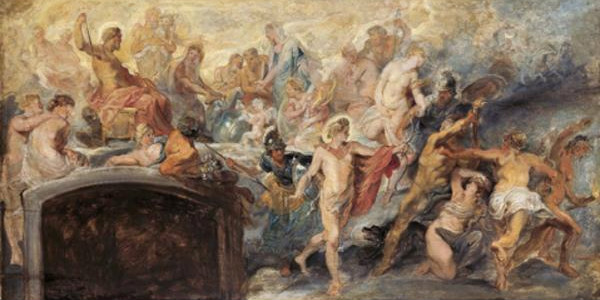
To be clear, all of this applies to one’s religious opinions (‘beliefs’, as some say), and not so much to spiritual practice. In almost all polytheist spiritual practice, including tribal and post-tribal religions, the gods and spirits are addressed as if ‘hard’ polytheism were true. It seems to me that even modern archetypalists tend to address specific ‘aspects’ – names and forms – of the ancient gods in many cases. Back in my Wiccan days, when I hung with lots of eclectic types, practical deity work almost always involved some specific cultural form. There are vanishingly few examples of the active worship of ‘the One’, or of a pantheistic ‘God’, even in the most monistic polytheist systems. None of this prevents philosophers and poets in polytheistic systems from discussing which gods are ‘aspects’ of one another, how the gods of disparate cultures are related, or how many gods there might be, total.
Incidentally this largely solves, for me, the problem of those archetypalists who feel inclined to define themselves as atheist when contrasted with the current hard polytheist position. The ‘archetypalist theist’ is, to me, every bit as much a theist as is the literalist. It seems to me that in the big tent of our modern Pagan restoration we mainly agree (or act as if we agree) that the gods and spirits exist. We disagree on what they exist *as* – discarnate intelligences, self-willed complexes in a collective consciousness, psycho-linguistic cultural artifacts – all these are theoretical models of what the spirits “really” might be. There’s not the slightest reason to argue about them much, because they mean very little to the successful operation of a modern Pagan or polytheist spirituality.
In the on-the-ground operation of a polytheist or animist spirituality we do as we please in our individual spiritual practice (as everyone does, even in more authoritarian systems). In our more public practice it seems untraditional to me to even inquire as to the ‘beliefs’ of anyone willing to stand in reverence and participate in the rites. In that sense anyone who is willing to stand with our folk as we make the offerings, sing the songs, drink the blessing is a “worshipper of the gods & spirits”, regardless of their opinion of what is “really” going on.


